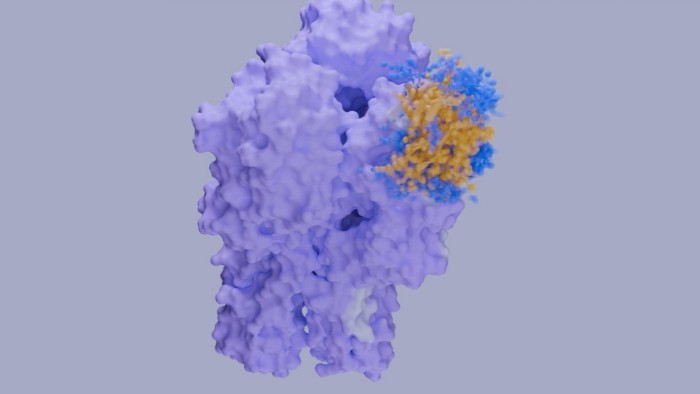Stay informed with free updates
Simply sign up to the Artificial intelligence myFT Digest — delivered directly to your inbox.
OpenAI-backed start-up Chai Discovery has raised $70mn, valuing the group at about $550mn, as investors bet on the potential for artificial intelligence to speed up drug discovery and tackle disease.
The two-year-old company attracted investment from groups including Menlo Ventures, Yuri Milner’s DST Global Partners and Yosemite — an oncology-focused investment group founded by Reed Jobs, son of Apple founder Steve Jobs.
Existing backers Thrive Capital and OpenAI also participated in the funding round, which values Chai at about $550mn including the new money, according to a person familiar with the deal terms.
Chai is aiming to take on more established rivals such as Isomorphic Labs, the drug discovery start-up spun out of Google’s DeepMind AI unit. Isomorphic, whose chief executive is Nobel Prize winner Sir Demis Hassabis, raised $600mn in March.
Chai has built an AI model that its founders claim can transform the process of designing molecules that bind to proteins and influence their function. The company aims to enable the creation of de novo antibodies and, ultimately, drugs.
“We have the potential to move a lot faster, generate more medicines and better medicines,” said Joshua Meier, the company’s chief executive and co-founder. AI has opened a path to address previously “undruggable targets”, he added.
The start-up plans to commercialise its new model by partnering with multiple pharmaceutical companies.
But while money is pouring into start-ups in the sector in the hope it will transform the long process of discovering new drugs, it has yet to bear fruit. Many drugs have been discovered by AI in early-stage trials, but none have been approved so far.
Meier acknowledges that “there have been many false starts” for promising biotech breakthroughs, but said advances in AI had created a more solid base for innovation.
Chai’s latest model, Chai-2, generates novel designs for antibodies to target specific disease-causing proteins. The model was tasked with designing antibodies for about 50 proteins, and roughly a sixth of those bound to their target proteins. That compares with a usual hit rate of about one in 1,000, according to Chai.
The company is also adding Pfizer’s former chief scientific officer Mikael Dolsten to its board.
According to Greg Yap, a partner at Menlo Ventures, Chai brings “together the best of deep AI talent with real biology expertise”. Menlo led the funding round via its co-investment vehicle with AI start-up Anthropic.
The improved performance comes from advances in AI and from Chai’s development of its own proprietary data, algorithms and model, according to co-founder Jack Dent.
The drug discovery process has traditionally involved trial and error — a process Dent likens to trying a million different keys to see which will fit a single lock.
He claims Chai can flip that process. “In a world of one million keys, people weren’t being intentional about the design of the keys. With our proteins, we say ‘here is the target, design something that will fit’,” he said.
“One of the biggest markets in the world, biopharma, is about to have a freight train drive through it, going from analogue to digital,” added Dent.
Additional reporting by Hannah Kuchler in London
